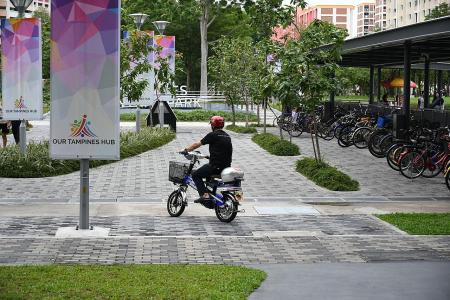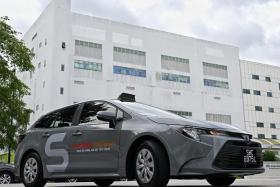E-bike users must pass test to ride on roads under proposed changes
With mandatory theory tests for e-scooter and electric bicycle riders set to begin from the middle of this year, proposed amendments to traffic laws will make it an offence to ride an e-bike on roads here without having passed the test.
E-bikes, also known as power-assisted bicycles (PABs), are allowed on roads, cycling paths and shared paths such as park connectors. They are banned from footpaths.
The amendments tabled yesterday will bring the Road Traffic Act in line with the Active Mobility Act, which was amended last year to require PAB riders to pass a theory test before they can ride on cycling or shared paths.
PAB riders will need to pass only a single online theory test governed by both Acts and administered by the Land Transport Authority, with the proposed changes.
The Ministry of Home Affairs (MHA) said that the test will cover modules on both path and road safety to ensure riders are aware of active mobility rules, a general code of conduct and safe riding behaviour.
The test certificates will be valid for life, but can be cancelled if fraud or misrepresentation is found, or if there are major changes to the test itself after a certificate is issued.
During the debate on his ministry's budget last month, Senior Parliamentary Secretary for Transport Baey Yam Keng said a test handbook will be released some time this month.
The amendments introduced yesterday also include a new offence penalising companies and individuals that employ, or intentionally or negligently allow, a person to ride a PAB on roads if he or she has not passed the theory test.
For example, a food delivery company that does not check to ensure delivery personnel who ride PABs have already passed the test will be committing an offence, MHA said in response to queries.
For the two new offences, first-time offenders can be fined up to $2,000, jailed for up to six months, or both. Repeat offenders can be fined up to $5,000, jailed for up to a year, or both.
Another amendment tabled yesterday seeks to extend the existing autonomous vehicle regulatory sandbox by another five years until August 2027.
Get The New Paper on your phone with the free TNP app. Download from the Apple App Store or Google Play Store now



